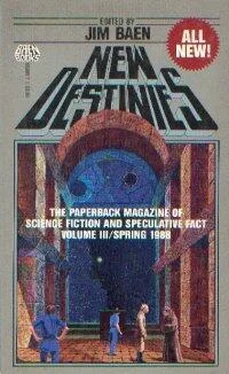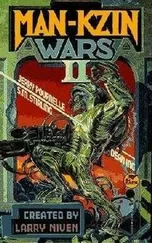Dean Ing - Cathouse
Здесь есть возможность читать онлайн «Dean Ing - Cathouse» весь текст электронной книги совершенно бесплатно (целиком полную версию без сокращений). В некоторых случаях можно слушать аудио, скачать через торрент в формате fb2 и присутствует краткое содержание. Год выпуска: 1988, ISBN: 1988, Издательство: Baen, Жанр: Космическая фантастика, на английском языке. Описание произведения, (предисловие) а так же отзывы посетителей доступны на портале библиотеки ЛибКат.
- Название:Cathouse
- Автор:
- Издательство:Baen
- Жанр:
- Год:1988
- ISBN:978-0-671-65385-9
- Рейтинг книги:3 / 5. Голосов: 1
-
Избранное:Добавить в избранное
- Отзывы:
-
Ваша оценка:
- 60
- 1
- 2
- 3
- 4
- 5
Cathouse: краткое содержание, описание и аннотация
Предлагаем к чтению аннотацию, описание, краткое содержание или предисловие (зависит от того, что написал сам автор книги «Cathouse»). Если вы не нашли необходимую информацию о книге — напишите в комментариях, мы постараемся отыскать её.
Cathouse — читать онлайн бесплатно полную книгу (весь текст) целиком
Ниже представлен текст книги, разбитый по страницам. Система сохранения места последней прочитанной страницы, позволяет с удобством читать онлайн бесплатно книгу «Cathouse», без необходимости каждый раз заново искать на чём Вы остановились. Поставьте закладку, и сможете в любой момент перейти на страницу, на которой закончили чтение.
Интервал:
Закладка:
“Granted,” said the commander. Locklear took more notes as the two kzinti piloted their ship nearer. If lifeboats were piloted with the same systems as cruisers, and if he could study the ways in which that lifeboat drive could be energized, he might yet take a hand in his fate. The maneuvers took so much time that Locklear feared the kzin would drop the whole idea, but, “Let it be recorded that I keep my bargains, even with monkeys,” the commander grouched as the planet began to grow in the viewport.
“Tiny suns, orbiting the planet? Stranger and stranger,” the navigator mused. “Grraf-Commander, this is not natural.”
“Exactly so. It is artificial,” said the commander. Brightening, he added, “Perhaps a special project, though I do not know how we could move a full sized planet into orbit around a dwarf. Tzak-Navigator, see if this tallies with anything the Patriarchy may have on file.” No sound passed between them when the navigator looked up from his screen, but their shared glance did not improve the commander’s mood. “No? Well, backup records in triplicate,” he snapped. “Survey sensors to full gain.”
Locklear took more notes, his heart pounding anew with every added strangeness of this singular discovery. The planet orbited several light-minutes from the dead star, with numerous satellites in synchronous orbits, blazing like tiny suns—or rather, like spotlights in imitation of tiny suns, for the radiation from those satellites blazed only downward, toward the planet’s surface. Those satellites, according to the navigator, seemed to be moving a bit in complex patterns, not all of them in the same ways—and one of them dimmed even as they watched. The commander brought the ship nearer, and now Tzak-Navigator gasped with a fresh astonishment. “Grraf-Commander, this planet is dotted with force cylinder generators. Not complete shells, but open to space at orbital height. And the beam-spread of each satellite’s light flux coincides with the edge of each force cylinder. No, not all of them; several of those circular areas are not bathed in any light at all. Fallow areas?”
“Or unfinished areas,” the commander grunted. “Perhaps we have discovered a project in the making.”
Locklear saw blazes of blue, white, red, and yellow impinging in vast circular patterns on the planet’s surface. Almost as if someone had placed small models of Sirius, Sol, Fomalhaut, and other suns out here, he thought. He said nothing. If he orbited this bizarre mystery long enough, he might probe its secrets. If he orbited it too long, he would damned well die of starvation.
Then, “Homeworld,” blurted the astonished navigator, as the ship continued its close pass around this planet that was at least half the mass of Earth. Locklear saw it too, a circular region that seemed to be hundreds of kilometers in diameter, rich in colors that reminded him of a kzin’s fur. The green expanse of a big lake, too, as well as dark masses that might have been mountain crags. And then he noticed that one of the nearby circular patterns seemed achingly familiar in its colors, and before he thought, he said it in Interworld: “Earth!”
The commander leaped to a mind-numbing conclusion the moment before Locklear did. “This can only be a galactic prison—or a zoo,” he said in a choked voice. “The planet was evidently moved here, after the brown dwarf was discovered. There seems to be no atmosphere outside the force walls, and the planetary surface between those circular regions is almost as cold as interstellar deeps, according to the sensors. If it is a prison, each compound is well isolated from the others. Nothing could live in the interstices.”
Locklear knew that the commander had overlooked something that could live there very comfortably, but held his tongue awhile. Then, “Permission to speak,” he said.
“Granted,” said the commander. “What do you know of this—this thing?”
“Only this: whether it is a zoo or a prison, one of those compounds seems very Earthlike. If you left me there, I might find air and food to last me indefinitely.”
“And other monkeys to help in Patriarch knows what,” the navigator put in quickly. “No one is answering my all-band queries, and we do not know who runs this prison. The Patriarchy has no prison on record that is even faintly like this.”
“If they are keeping Heroes in a kzinti compound,” grated the commander, “this could be a planet-sized trap.”
Tzak-Navigator: “But whose?”
Grraf-Commander, with arrogant satisfaction: “It will not matter whose it is, if they set a vermin-sized trap and catch an armed lifeboat. There is no shell over these circular walls, and if there were, I would try to blast through it. Re-enable the lifeboat’s drive. Tzak-Navigator, as Executive Officer you will remain on alert in the Raptor. For the rest of us: sound planetfall!”
Caught between fright and amazement, Locklear could only hang on and wait, painfully buffeted during re-entry because the kzin-sized seat harness would not retract to fit his human frame. The lifeboat, the size of a flatlander’s racing yacht, descended in a broad spiral, keeping well inside those invisible forcewalls that might have damaged the craft on contact. At last the commander set his ship on a search pattern that spiraled inward while maintaining perhaps a kilometer’s height above the yellow grassy plains, the kzin-colored steaming jungle, the placid lake, the dark mountain peaks of this tiny, synthesized piece of the kzin homeworld.
Presently, the craft settled near a promontory overlooking that lake and partially protected by the rise of a stone escarpment—the landfall of a good military mind, Locklear admitted to himself. “Apprentice Engineer: report on environmental conditions,” the commander ordered. Turning to Locklear, he added, “if this is a zoo, the zookeepers have not yet learned to capture Heroes—nor any of our food animals, according to our survey. Since your metabolism is so near ours, I think this is where we shall deposit you for safekeeping.”
“But without prey, Grraf-Commander, he will soon starve,” said Apprentice Engineer.
The heavy look of the commander seemed full of ironic amusement. “No, he will not. Humans eat monkeyfood, remember? This specimen is a kshat.”
Locklear colored but tried to ignore the insult. Any creature willing to eat vegetation was, to the kzinti, kshat, a herbivore capable of eating offal. And capable of little else. “You might leave me some rations anyway,” he grumbled. “I’m in no condition to be climbing trees for food.”
“But you soon may be, and a single monkey in this place could hide very well from a search party.”
Apprentice Engineer, performing his extra duties proudly, waved a digit toward the screen. “Grraf-Commander, the gravity constant is exactly home normal. The temperature, too; solar flux, the same; atmosphere and micro-organisms as well. I suspect that the builders of this zoo planet have buried gravity polarizers with the force cylinder generators.”
“No doubt those other compounds are equally equipped to surrogate certain worlds,” the commander said. “I think, whoever they are—or were the builders work very, very slowly.”
Locklear, entertaining his own scenario, suspected the builders worked very slowly, all right—and in ways, with motives, beyond the understanding of man or kzin. But why tell his suspicions to Scarface? Locklear had by now given his own private labels to these infuriating kzin, after noting the commander’s face-mark, the navigator’s tremors of intent, the gunner’s brutal stupidity and the engineer’s abdominal patch: to Locklear, they had become Scarface, Brickshitter, Goon, and Yellowbelly. Those labels gave him an emotional lift, but he knew better than to use them aloud.
Читать дальшеИнтервал:
Закладка:
Похожие книги на «Cathouse»
Представляем Вашему вниманию похожие книги на «Cathouse» списком для выбора. Мы отобрали схожую по названию и смыслу литературу в надежде предоставить читателям больше вариантов отыскать новые, интересные, ещё непрочитанные произведения.
Обсуждение, отзывы о книге «Cathouse» и просто собственные мнения читателей. Оставьте ваши комментарии, напишите, что Вы думаете о произведении, его смысле или главных героях. Укажите что конкретно понравилось, а что нет, и почему Вы так считаете.












